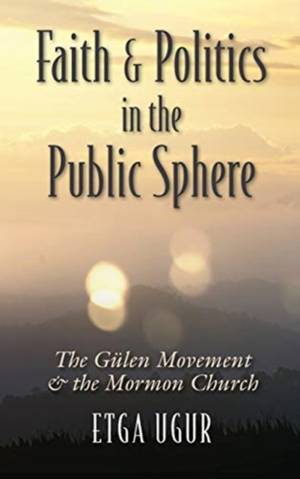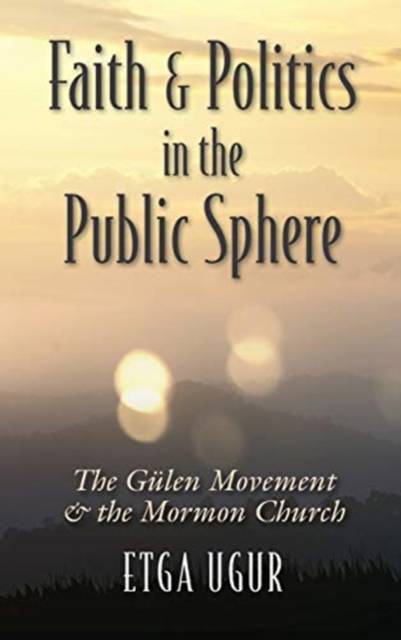
En raison d'une grêve chez bpost, votre commande pourrait être retardée. Vous avez besoin d’un livre rapidement ? Nos magasins vous accueillent à bras ouverts !
- Retrait gratuit dans votre magasin Club
- 7.000.000 titres dans notre catalogue
- Payer en toute sécurité
- Toujours un magasin près de chez vous
En raison de la grêve chez bpost, votre commande pourrait être retardée. Vous avez besoin d’un livre rapidement ? Nos magasins vous accueillent à bras ouverts !
- Retrait gratuit dans votre magasin Club
- 7.000.0000 titres dans notre catalogue
- Payer en toute sécurité
- Toujours un magasin près de chez vous
83,95 €
+ 167 points
Format
Description
In Faith and Politics in the Public Sphere, Ugur explores the politics of religious engagement in the public sphere by comparing two modernist conservative movements: the Mormon Church in the United States and the Gülen movement in Turkey. The book traces the public activities and activism of these two influential and controversial actors at the state, political society, and civil society domains, discerning their divergent strategies and positioning on public matters, including moral issues, religious freedoms, democracy, patriotism, education, social justice, and immigration. Despite being strikingly similar in their strong fellowship ties, emphasis on conservative social values, and their doctrines concerning political neutrality, these two religious entities have employed different political strategies to promote their goals of survival, growth, and the collective interests of their communities. In contrast to the Mormon Church's more assertive approach and emphasis on its autonomy and distinctiveness, the Gülen movement has been rather cautious with its engagement in the public sphere, with preference for coalition building and ambiguity. To explain such different strategies, Ugur examines how the liberal and republican models of the public sphere have shaped the norms and practices of public activism for religious groups in Turkey and the United States. Ugur's deft and nuanced exploration of these movements' adaptation and engagement is essential to help us better understand the dynamic role of religious involvement in the public sphere.
Spécifications
Parties prenantes
- Auteur(s) :
- Editeur:
Contenu
- Nombre de pages :
- 336
- Langue:
- Anglais
- Collection :
Caractéristiques
- EAN:
- 9780815636298
- Date de parution :
- 12-07-19
- Format:
- Livre relié
- Format numérique:
- Genaaid
- Dimensions :
- 152 mm x 229 mm
- Poids :
- 594 g

Les avis
Nous publions uniquement les avis qui respectent les conditions requises. Consultez nos conditions pour les avis.






